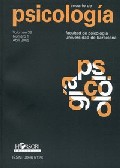La dialéctica del desarrollo: sobre la originalidad y alcance de la epistemología genética
Abstract
This text aims to point out a number of contradictions inherent in Piaget's work (or in other people's interpretations of Piaget's work) and discusses the validity of some of the accepted ideas about it. First, we link Piaget's positions, as expressed in the Circle of Sciences, with the traditions of scientific epistemology, a link which, due to the closed nature of the discourse, is not always apparent. In consequence, perhaps, many commentators on Piaget's work have tended to consider as specific to genetic epistemology problems which have confronted other areas of psychological research. Second, we analyze the dialectic of development, and conclude that it is a genuine dialectic, although to un extent cushioned by the central notion of "equilibrium". This is the same as saying that Piaget is a "dialectic structuralist", ensuring functional continuity and stimulating action as the motor of change, ut the expense of limiting himself to a centred, ruptureless change. Finally we examine the scope of genetic epistemology, and state that in spite of its biological roots its natural frontiers are the frontiers of human thought: its application to the field of animal cognition may be seriously hindered by a range of shortcomings.Downloads
Published
1996-01-12
Issue
Section
Articles
License
The authors who publish in this journal agree to the following terms:
Authors transfer to the publisher all copyright for the full term of protection and for all the world.
The authors can post a copy of their articles in accordance with the policy of free access to the journal.


